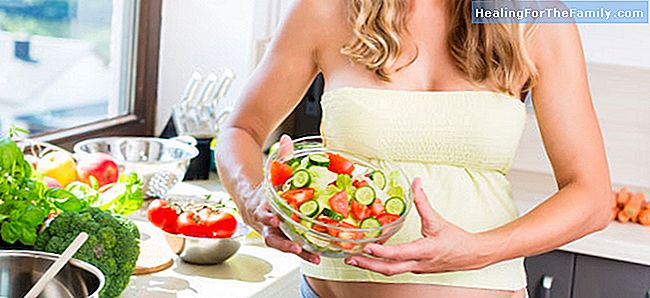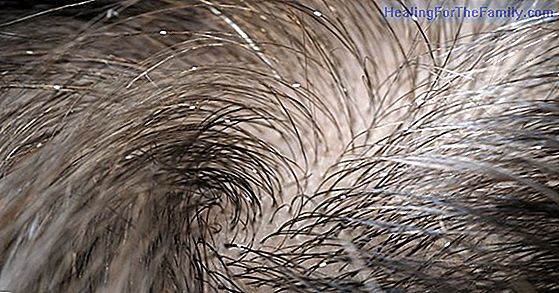Precautions of the vegetarian diet in pregnancy
A well-planned vegetarian diet can, under normal conditions, present benefits such as a high intake of fiber and low fat, in addition to being sufficient to cover nutritional needs. However, it is best to take precautions if a vegetarian diet is followed during pregnancy ya, since the contribution o
A well-planned vegetarian diet can, under normal conditions, present benefits such as a high intake of fiber and low fat, in addition to being sufficient to cover nutritional needs.
However, it is best to take precautions if a vegetarian diet is followed during pregnancy ya, since the contribution of some vitamins and minerals crucial for the development of the baby can be compromised.How to take a vegetarian diet in healthy and healthy pregnancy
To carry a correct vegetarian diet in pregnancy with all the necessary nutritional contributions for the correct growth of the baby it is advisable to follow these tips:

-
Iron . The lack of iron produces anemia, very frequent in pregnancy due to the increase in blood volume. Heme iron is found exclusively in foods of animal origin, while non-heme iron can be found both in foods of animal origin (such as eggs) and in vegetable origin, being the only iron present in vegetables. The main difference between both types of iron is its absorption and use in the body. Only less than 5% of the non-heme iron contributed with the diet is absorbed, compared to 25% of the heme iron. To increase the efficiency of its absorption, non-heme iron can be combined with foods rich in vitamin C -always in the same intake-, such as orange, pepper, broccoli or tomato. The iron intake in the vegan diet can be obtained, for example, from legumes, including soybeans, nuts and seeds or green leafy vegetables such as spinach and Swiss chard.-
Protein . The quality of the protein is very important during pregnancy, so, by not providing protein of animal origin, we must carefully choose the protein sources so that their combination has the highest biological value possible.-
Zinc . Zinc participates in the synthesis of proteins, the division and cell growth and the metabolism of nucleic acids, essential functions that, during pregnancy, are amplified. It is also necessary for the development of the brain of the fetus, and its immune system, in addition to relating to premature births and underweight when there is deficiency. To get a good supply of zinc, garlic, nuts and seeds, whole grains, legumes and, occasionally, an ounce of dark chocolate should be included in the diet.-
Vitamin B12 . This vitamin can only be obtained from foods of animal origin, so if they are not consumed, they should take food supplements, vitamins, or foods fortified with it.-
Vitamin D . Depending on the country and the season of the year - since the human body is able to synthesize it with the help of sunlight - a vitamin D supplement may be necessary during pregnancy. This vitamin is necessary to enhance the absorption of calcium, something of tremendous importance during pregnancy, since they are forming the bones of the fetus.-
b . The calcium in dairy products is the most easily absorbed, but if they are not consumed, it is advisable to ensure a good supply from other sources, such as green leafy vegetables, broccoli, and legumes, especially soybeans in all its varieties.












